One year on from when we started hearing about COVID-19, we speak to John Bernard, Aviva's Director of Group Corporate Security.
John has led Aviva's response to the pandemic since the very start. He was integral to the decision to send home 16,000 Aviva employees in UK.
In the latest episode of the Aviva Podcast, find out when John first heard about the outbreak, when he realised this was going to be serious and what his hopes are for 2021.

“I went back to the office and there was nobody on the streets. That, to me, was the moment in time when I thought ‘This is real’.”
John Bernard
Aviva's Director of Group Corporate Security
Transcript
00:00:00 Ben Moss
Hello and welcome to the Aviva Podcast. My name is Ben Moss. Now, in January 2020 we started to hear news reports like this:
00:00:13 Voice of News Broadcaster
Chinese authorities have launched an investigation into a mysterious viral pneumonia, which has infected dozens of people in the central city of Wuhan. A total of 44 cases have been confirmed so far, eleven of which are considered severe. The outbreak has prompted Singapore and Hong Kong to bring in screening processes for travellers from the city.
00:00:32 Ben Moss
At the time it felt like a small problem in a place pretty far away... I mean, how wrong could we be?
Now at the time of recording this podcast, the UK is in lockdown again with schools, shops and businesses closed, and we’re all being asked to stay at home.
Now on the Aviva Podcast today I'm joined by John Bernard. He is Director of Group Corporate Security and Operational Resilience at Aviva.
Welcome, John. Thank you very much for joining us on the podcast.
00:00:58 John Bernard
Hi Ben.
00:00:59 Ben Moss
Now John, it’s been your job to basically lead Aviva's response to the COVID-19 pandemic. Now we're going to get onto everything you've done in the last 12 months or so, but right now, let's get back to the start. When did you first start to hear about this thing called Corona virus or COVID-19?
00:01:17 John Bernard
Late December 2019.
There started to be some reports of a new, what they call novel, virus being reported in Wuhan. Nobody really knew where Wuhan was until that point. And they were starting to see an increase in Corona virus, which has been shortened to Covid-19 - which generally means Corona virus disease of 2019
And it was started to be reported and the WHO (World Health Organisation) and various other organisations started to sit up and take notice.
00:01:57 Ben Moss
Can you remember what you thought about it in those early days?
00:02:00 John Bernard
We’re very active in keeping a watch on what's happening globally. New viruses do pop up quite a lot, but when the Chinese took the actions that they took in January... the Chinese tend not to overreact, so when they took the actions that they took, it started to make me think this potentially could be something bigger than just Wuhan and just China.
And then you started to see some chatter going around from the ECDC, which is the European Centre for Disease Prevention, and WHO, and it started to gather momentum. It made me think this potentially could have a larger, wider impact on society.
00:02:56 Ben Moss
Can you give a time frame for that? But maybe into February, maybe, starting to think this?
00:03:01 John Bernard
Yes, so the end of the end of January is when the WHO, the European region, implemented what they called COVID-19 surveillance. That’s really starting to pay attention to it.
We were seeing European countries start to report cases, and on the 23rd of January was when Wuhan City got locked down. That was all travel in and out of Wuhan was prohibited, and moving inside the city was restricted, and at that point I thought ‘this is actually going to be a big issue’ and that's January.
00:03:38 Ben Moss
Okay, so I've myself come up with a brief timeline of activity. This is going to sound terrible because I'm going to summarise what you and your team have done in a year into about four sentences, but for the sake of the podcast we’ll go through it. So correct me if I'm wrong anywhere...
So, February 2020 you and your team implemented a travel ban, or restricted travel anyway, between Aviva offices - and that's Aviva offices in the UK.
Then in March 2020, I mean Aviva offices were effectively closed in line with national lockdown. All employees moved to homeworking. We weren't obviously alone in that, every business in the land basically did the same thing if they could do it.
Then during May and June, you and your team started to prepare Aviva offices to be COVID Secure, ready to reopen again - again to a very small numbers of employees though.
And then during the rest of 2020, you’re monitoring the ongoing developments, providing guidance to Aviva Senior Management – the ever-changing government guidance as well, of course, as the pandemic progressed.
And weirdly, it seems have gone full circle again because, come January 2021, you are back to closing down offices to all but critical workers.
I mean, that's a very brief summary of a huge amount of work that's gone in 12 months.
Of all that, is there anything that really stands out to you, something that makes you take a step back and, when you hear it summarised, just take a bit of an intake of breath and go “I can't believe that is something I've had to do in the sphere of my work.
00:05:03 John Bernard
Yeah, I mean you've mapped it out very eloquently there, I might actually use that in other forums.
I think when the WHO declared it as a pandemic in March, and by the end of that month the world was seeing, you know, more than half a million people infected and 30,000 plus deaths... people started to pay attention really, now, right? And the challenges that we got around restricting travel and, you know, things that really started to impact our colleagues’ mobility and ability to move.
You have to educate, respectfully, people, and at that time it was really difficult because we were very, very active colleague bases. You know, domestic and international travel is required. So when you’re saying to someone “we’re going to stop that” it almost feels like you're taking away their liberty.
One of the things that really stood out to me as we started to go through that... and I think the case activity in Italy was, for me, a turning point in Aviva, where we started to see the Italian regions lockdown and case numbers increase. Italy is obviously, from a ski location, a very active location. That was a turning point for me. And it was almost a mind shift in the business, and we got excellent support from our exco and senior leadership team to make tough decisions quickly.
But when the Italian situation became very clear, it was starting to have a bigger European impact, there was a mood shift in our colleagues and people actually started to listen to the advice they were given and understand, more importantly. And that's the key point, is understanding why we were taking a decision that we were taking.
I don't think any of us would ever have thought at the start of 2020 that we would have to apply such pace and rigour to inhibitive controls. But our people got on board with it, you know, and fantastic collaboration from the P&F (property and facilities) team and the workplace leads. We didn't have to continually repeat ourself. People took the message on board, understood it, needed a bit of clarification and then got on with it.
I think when we sent the message to support Boris’s go home message... that to me was a moment that actually stood still.
I was in the City of London at the time. I left the office - we were working through this - and went back to my hotel, Boris did his announcement, I went back to the office and there was nobody in the streets.
And it was... that to me was a moment in time when I thought “this is real.”
00:08:17 Ben Moss
It’s all bringing back memories. There are things like that... the way you just spoke then, it reminds me of that period in March, like the first couple of weeks of March where - and this is not just in Aviva, this is across the country, across the world... I don’t know if you felt like this, the situation was changing on an hourly basis, like decisions were being made and an hour later people were having to look back and “is that the right decision? Do we need to review it?”
The pace was absolutely incredible. I mean, I was going to ask, you've got a security background. You’ve worked in security a long time. Does any of your experience, your training, did it actually prepare you for what you've been doing for 12 months, or is this completely new?
00:09:01 John Bernard
Well, it is new. The last time we had a global pandemic I wasn't alive, it was 100 years ago, but I don't think anyone can really be fully prepared for this type of event. We all think we can handle it, but in truth not everyone can, and that's okay.
You’ll find strong leadership in tough times from people that you would never have thought would be up for it. And whilst professionals and groups of individuals... you train, you drill, you prepare as best you can for lots of scenarios. But, you know, you have plans, but in reality most of the plans that are on paper can go out the window when a true crisis hits, and you really need to have that ability to flex your leadership style.
That's where the leadership and the training side of things kicks in. The corporate world is a very different world from other areas that I've got experience in. Where decisions were made... the consequences of your decisions might be slightly different. And the one thing that me, and my team and Aviva have been focused on over the past three years was our crisis management structure and how we reacted to crisis. That did allow us to respond a lot more structured than we may have been able to in the past and has evolved 100% better since then as well.
So. Was I prepared? No, but lucky enough to be surrounded by amazing people from all aspects of the business who were able to pull together and support us through this.
00:10:56 Ben Moss
You pulled out that moment in time for you when the full lockdown was announced and you were in London looking around. The streets are empty. Is there anything that you would also single out across the past 12 months? Where you would say for you and your team, it was the biggest, single biggest challenge? The whole year I imagine has been challenging, but is there anything you can pinpoint and say that that bit was difficult.
00:11:17 John Bernard
The difficult part is now, actually, Ben. We, you know, it's hard to find someone to talk to that hasn't lost someone or is worried about someone, and now you know we've been through that. We've been in this nearly a year now, and a whole set of flexed and ever-changing controls that are difficult to keep abreast of, and understand what you're allowed to do and you're not allowed to.
And as we as we get to this point, where we’re seeing the vaccination roll out and light off the tunnel. The tunnel’s still long - the light is there, but it's a long tunnel. We are seeing what Colm and other people that are referring to as “covid fatigue” around the controls.
There is almost a... there is a compliance issue in some parts of society which is fuelling frustration in other parts of society, and then you get into that almost defiance mood where people are saying “I've had enough of this,” and we've seen the demonstrations taking place and that just fuels concern. So this is the tough time. This is the point where we have a choice s a society. We can either stick to the rules and keep each other safe and well. And get through this tough point.
Or not, and this will be another really really really challenging year. and I see 2021 a bit like a session in the gym, right? Remember those? When we used to be able to go to the gym?
You know, tough to start with. Gets a little bit better in the middle of the session, and then you need to be really cautious that you don't hurt yourself at the end.
You know that my rough analogy on it.
00:13:15 Ben Moss
Ah, you’re going to steal something from my podcast, I might steal that from your podcast answer! I like that one, the gym analogy. I'll take that one. And can you... It might be an odd question, can you take any positives from 2020?
00:13:29 John Bernard
Yes, I can. I can see, from inside our business, absolute collaboration of people that may not have necessarily come together on a scale like this... we've never had to come together. You know, we've embraced the challenge and we've addressed, by default, challenges that we would have had this year. The work from home capability is huge for instance.
I've also seen people really start to understand what's important to them. Families coming together, communities coming together, which may not necessarily have done so.
But also this... I refer to Aviva as a family. And you know, we genuinely see care and compassion and consideration for each other, really rising to the surface. And I think that whenever there is darkness that needs to be light.
And I think wherever there’s... When we’re faced into challenges like this, we need to have hope.
I think together we really bring that hope to life. And it’s our people that really stands out for me.
00:14:53 Ben Moss
So I'm hoping we might end on a positive. I mean no one could have predicted, even you with your connexions, back in January 2020, probably wouldn't have predicted what last year looked like.
It feels like quite a dark time at the moment in the middle of another national lockdown. Kids are home from school. People are working, trying to home school, nothing’s open, the weather's terrible. It's cold and it's dark... How do you see 2021 playing out? If you had to make some form of prediction?
00:15:23 John Bernard
So I think if we do the right thing now... we're definitely seeing hope with the vaccination programme... if we do the right thing now as society and we stick to the rules - as tough as that is right now - but if we if we do that for a just a little bit longer, then come the spring we’ll start to see some relaxations coming in and we’ll start to see some life coming back to normal. And we’ll start to see some reduction in controls. And as we move into summer, if we've done the right thing, we’ll get our summer back.
And that's my hope, is that we get into summer and we get our summer back.
I do think as we then go back into winter that this is going to be with us for a long time, and we will still have some of the controls around us for years to come.
I think the wearing of face coverings will become a norm, even when we've broken the back of this. We’ll see people travelling, and in public transport and large gatherings, I do think we will still see people using the face coverings because it’s started to be ingrained now.
But I do think that, if we stick to the rules, we will break the back of it this year.
Gotta have hope, Ben, right?
00:16:37 Ben Moss
Gotta have hope. I think we’ll end there on hope. Well, John Bernard, you are director of group corporate security and operational resilience at Aviva, thank you so much for your time and for talking to me today. And thank you for keeping everybody at Aviva safe as well.
And if you want to know more about Aviva's coronavirus response, there's lots more information on the website: aviva.com.
More information
Here's a selection of our other podcasts
-

Features
Retirement: the longest holiday you’ll ever plan
22 Nov 2023
In this episode of the Aviva Podcast, Steve and Tom unpack workplace pensions.
-
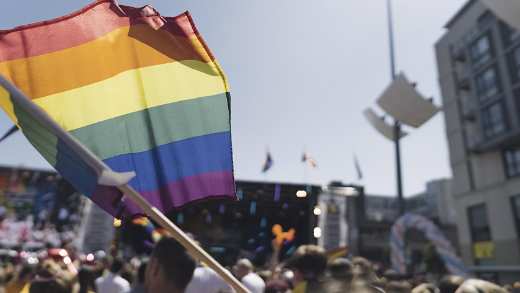
Features
Aviva Pride: amazing, supportive and hopeful
27 Jun 2022
David, Jenny and Jason share their stories of what Aviva's Pride community is all about, why it’s so important, and what it means to them.
-
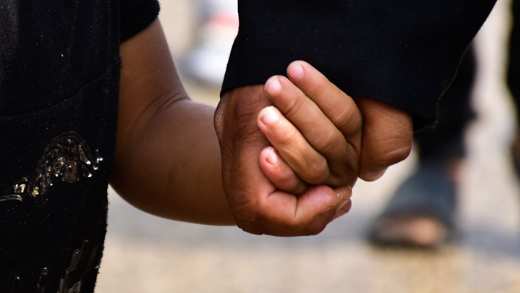
Features
Our carers community: compassionate, caring and resilient
7 Jun 2022
Listen in as Martin, Natalie and Kofi share their stories of why Aviva Carers is so important, and why the community means so much to them.
-

Features
Wellbeing special: living and working with autism
1 Apr 2022
In this wellbeing special episode, our host Johnny talks to Aviva employees and couple Matthew and Daniel about their experiences living with autism.
-
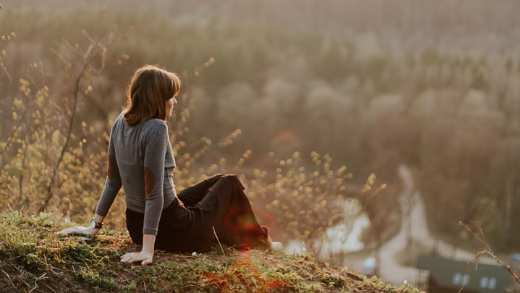
Features
Wellbeing special: dealing with loneliness
22 Dec 2021
In this wellbeing special episode, our host Johnny talks about loneliness with Dr. Rob Rosa, Chief Medical Officer at Aviva.
-

Features
A better day after tomorrow
11 Oct 2021
In this episode of our podcast series 'A Better Tomorrow', we dig a little deeper into climate change. What’s happening to our world and what, if anything, can we do about it?
-
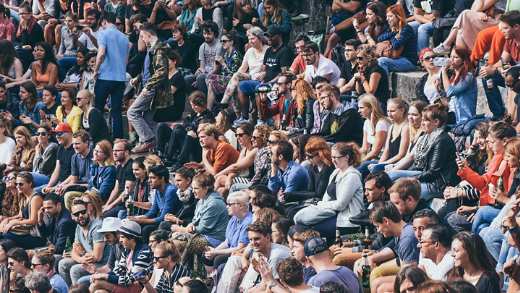
Features
Wellbeing special: tips to tackle 'lockdown anxiety'
27 Jul 2021
In the first of a mini-series of wellbeing specials...
-
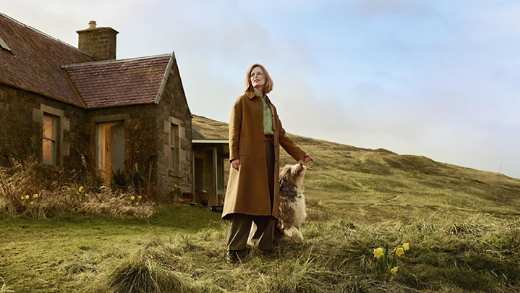
Features
The power of a sonic logo
23 Jun 2021
When Aviva unveiled its new brand positioning, 'It takes Aviva', it did something it's never done before.
-

Features
Could robots lead to a better tomorrow?
29 Mar 2021
It's been a hundred years since the word 'robot' was first used*, but are we another century away from seeing them in our daily lives?
-
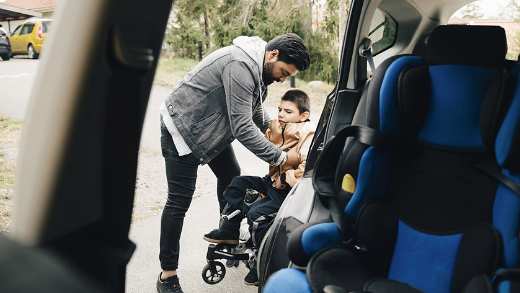
Building a more inclusive organisation
20 Jan 2021
In this episode, we talk to six of our Aviva Communities co-chairs to find out how they're working towards making Aviva a more inclusive organisation.
-

Can ‘cognitive reserve’ improve resilience to dementia?
9 Dec 2020
In the latest episode of the Aviva Quantum podcast, we talk about increasing our resilience to the effects of dementia.
-
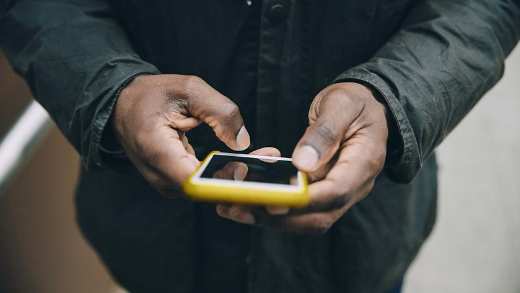
Retirement in the time of coronavirus
19 Oct 2020
People in mid-life are a population under strain. Could a simple app, empower them to take control and improve their work, wealth and wellbeing?
-
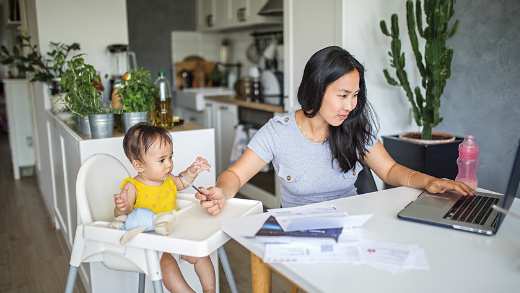
Flexible working: what workers want
23 Sep 2020
What can supportive employers do to make working from home easier for their people?
-

How to be a leader when you're at home
16 Jul 2020
COVID-19 has seen millions of people swap their offices for homeworking. How can you be an effective leader from home?
-
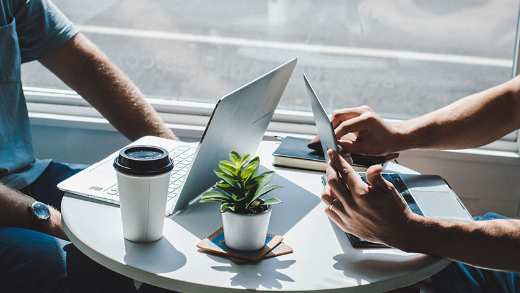
Ever heard of an MOT for humans?
5 Sep 2019
Every year, you put your car in for its MOT. But how often do we take a step back and give the important areas of our life an assessment?
-

Dementia: the 21st century's biggest killer
3 Sep 2019
Dementia is the 21st century's biggest killer and 1 in 3 babies born now will go on to develop dementia.

















